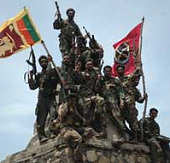 Back in November, Pennsylvania-based Colorcon, a manufacturer of specialty chemicals for the food and pharmaceutical industries, agreed to pay $39,000 to the Bureau of Industry and Security, based on alleged violations of BIS’s anti-boycott regulations. According to the charging documents and settlement agreement, Colorcon’s U.K. subsidiary provided assurances in connections with sales to Syrian companies that no Israeli components were used and that Colorcon would otherwise comply with Syria’s boycott of Israel. Additional charges settled by Colorcon included Colorcon’s failure to report the boycott requests at issues.
Back in November, Pennsylvania-based Colorcon, a manufacturer of specialty chemicals for the food and pharmaceutical industries, agreed to pay $39,000 to the Bureau of Industry and Security, based on alleged violations of BIS’s anti-boycott regulations. According to the charging documents and settlement agreement, Colorcon’s U.K. subsidiary provided assurances in connections with sales to Syrian companies that no Israeli components were used and that Colorcon would otherwise comply with Syria’s boycott of Israel. Additional charges settled by Colorcon included Colorcon’s failure to report the boycott requests at issues.
A recent article in the Jerusalem Post provides some interesting detail on the settlement agreement and the circumstances that led to it. The reporter interviewed Pam Lehrer, general counsel for the Berwind Group, a private investment firm that owns Colorcon. She said that the violations were the result of an “oversight”:
This matter occurred at Colorcon’s UK subsidiary. The requests were typically in the fine print of the terms and conditions, and the UK subsidiary’s employees were not aware of the requirement to look carefully for these matters and report them. We became aware of the issue through an internal audit review. We felt it was important to review our compliance with the antiboycott laws and performed an audit of our subsidiaries. As a result, we found the issue and voluntarily reported it to the US Commerce Department.
That statement differs from what Colorcon admitted in the settlement documents. In those documents, the company conceded that the anti-boycott certifications “with intent to comply with, further or support an unsanctioned foreign boycott.” This specific intent requirement is contained in section 760.1(e) of the Export Administration Regulations. If the information was buried in the fine print and the U.K. employees were not aware of the requirement to find such provisions, it’s hard to say that the U.K. employees signed these contracts with the intent to participate in the boycott against Israel.
Of course, agreeing to pay $39,000 to BIS may make more sense than paying much more to lawyers to litigate with BIS over whether the U.K. subsidiary had the requisite intent to comply with the Syrian boycott of Israel.

 Posted by
Posted by  Category:
Category: 

 From our
From our  The Government Accounting Office released today a
The Government Accounting Office released today a  Pursuant to a
Pursuant to a 

